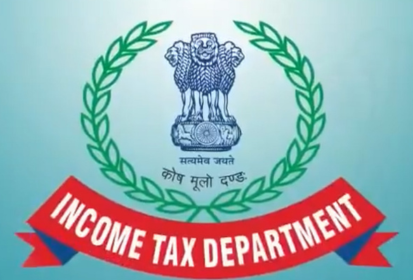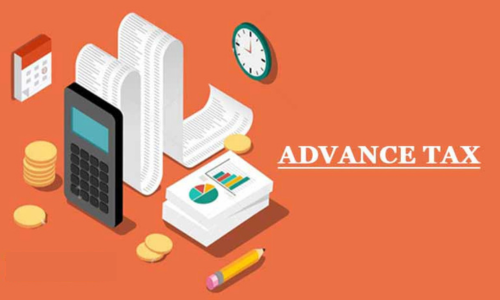In this article, we will discuss about...
Introduction
I usually avoid discussing controversial topics because they tend to cause more trouble than they’re worth. But today, I feel the need to make an exception. The issue I’m about to discuss is too important to ignore, and I believe it could help many taxpayers avoid a cleverly disguised trap. This trap is the biggest government-sponsored scam that happens every year, and the worst part? It’s carried out by the same government that’s supposed to protect us.
Why read when you can also watch our video
What Is This Scam?
Every year, around 7.5 crore people in India file their income tax returns. Most of these people don’t even owe any taxes, but they still file their returns. Here’s where the scam starts. A small percentage of these taxpayers—maybe 5%, 2%, or 3%—receive a notice or demand from the Income Tax Department. The amount demanded is usually small, typically between ₹5,000 and ₹10,000.

At first, you might think this demand is legitimate since it’s coming from the government. But in many cases, it’s not. The demand is often calculated in a way that seems designed to take money from unsuspecting taxpayers. Here’s how it works: If I, as a taxpayer, receive a demand for a small amount—say ₹5,000 or ₹10,000—I’m unlikely to consult a Chartered Accountant (CA) or a tax consultant. I’ll probably just pay it to avoid any hassle.
Now, think about this on a larger scale. Out of the 7.5 crore people filing returns, even if just 10% or 5% receive these small demands, that’s around 70 to 80 lakh people. Almost 70-80% of them will pay up quietly, thinking it’s a legitimate charge.
The Numbers Don’t Lie
Let’s break down the numbers. If we take an average demand of ₹8,000 and multiply it by 70 lakh people, the total comes to ₹56,000 crore. That’s ₹56,000 crore of taxpayer money slipping through the cracks every year, and hardly anyone notices.
Why Does the Income Tax Department Do This?
You might wonder why the Income Tax Department would do this. The reason is simple: they can collect an extra ₹40,000 to ₹50,000 crore with little resistance. For example, when they increased the capital gains tax by 12.5%, there was a lot of backlash, and they eventually had to roll back the provision related to property sales. Since extracting money directly is difficult due to public resistance, they resort to indirect methods like this. But make no mistake—this is still a scam, even if a government department is doing it. The sad truth is they don’t really need this extra money; they’re just taking advantage of the fact that most taxpayers won’t challenge a small demand.

What Happens If You Don’t Pay?
Some people might think they can avoid paying these small demands, assuming the Income Tax Department will forget about it. But that’s not how it works. The department keeps the demand on your income tax portal, and when you’re due for a refund, they simply deduct the amount from your refund. So, even if you don’t pay now, they’ll recover it later. It’s a clever tactic, but also deeply unfair.
Why Don’t Taxpayers Fight Back?
You might wonder, “Why don’t people just approach a CA or tax consultant to dispute these demands?” The answer is simple: responding to such notices or demands is often more expensive than just paying them. For example, if you consult a CA, they might charge you ₹45,000 to ₹50,000 just to handle a notice of appeal. So, most people quietly pay the small demand, and those who don’t pay see the amount deducted from their future refunds. It’s a lose-lose situation for the average taxpayer.
The Complicated World of Interest Charges
If you’re familiar with income tax, you might think these small demands could be interest charges. But the interest calculation in India is extremely complicated. For example, if you miss paying 100% of your taxes before March 31st, the interest rate is almost 36% annually, broken down into 1% monthly interest across three different sections.

This isn’t just interest; it’s basically a penalty for being a taxpayer. Even credit card companies don’t charge this much, and many people complain about their high rates. Yet, the government charges almost 90% of taxpayers some sort of interest if they haven’t paid 100% of their taxes by March 31st. It’s ridiculous, and it happens every year, right under our noses.
What Can You Do to Avoid These Problems?
Now that you’re aware of this issue, let’s discuss some steps you can take to protect yourself from falling victim to this scam.
1. Pay Advance Tax
If you’re paying more than ₹10,000 in taxes annually, always remember to calculate and pay your advance tax. This is especially important for professionals and business owners, as salaried individuals often have their taxes deducted at source by their employers. However, even salaried individuals should ensure they report all their income, including capital gains or other sources. Pay any additional tax before March 15th or at the latest by March 31st to avoid the 36% interest penalty. Being proactive can save you from unnecessary interest charges and demands.

2. Review Notices Carefully
If you receive a notice, even for a small amount, and you believe it’s unjustified, don’t just pay it. You can send these notices to a trusted CA or tax consultant. Some firms, like ours, offer to check the legitimacy of the demand for free. If it’s not your mistake, we will fight the case and file an appeal or rectification on your behalf at no cost to you. This is our way of supporting taxpayers who are genuinely contributing to building this nation.
3. Understand the Income Tax Department’s Role
Some people might ask why I’m speaking negatively about the Income Tax Department. The truth is, the department has a lot of power, but they are essentially the collection agents for the Government of India. Their efficiency is judged by how much tax they collect, not by how they collect it. Even if they collect taxes wrongly or falsely, it’s still considered acceptable, and they have immunity from the government.
Unlike a police officer who can be suspended for filing a wrong FIR, an income tax officer faces no consequences for passing a wrong demand order that harasses taxpayers. This immunity needs to be addressed. The department should be reasonable and penalize those who truly evade taxes, not harass law-abiding citizens who are simply trying to comply with the law.
Conclusion
In conclusion, the Income Tax Department should not engage in these kinds of scams to extract extra tax revenue, which often ends up being wasted. As taxpayers, we need to be vigilant and ensure we’re not being taken advantage of. By paying attention to your tax obligations, reviewing any notices you receive carefully, and understanding the role of the tax man, you can protect yourself from this yearly trap.
Remember, as taxpayers, we’re the backbone of the nation. We contribute to building a stronger country. Let’s not allow ourselves to be exploited by unfair practices. Stay informed, stay vigilant, and don’t hesitate to seek help if you find yourself facing an unjust demand. Your vigilance could save you—and many others—a lot of money and unnecessary stress.


